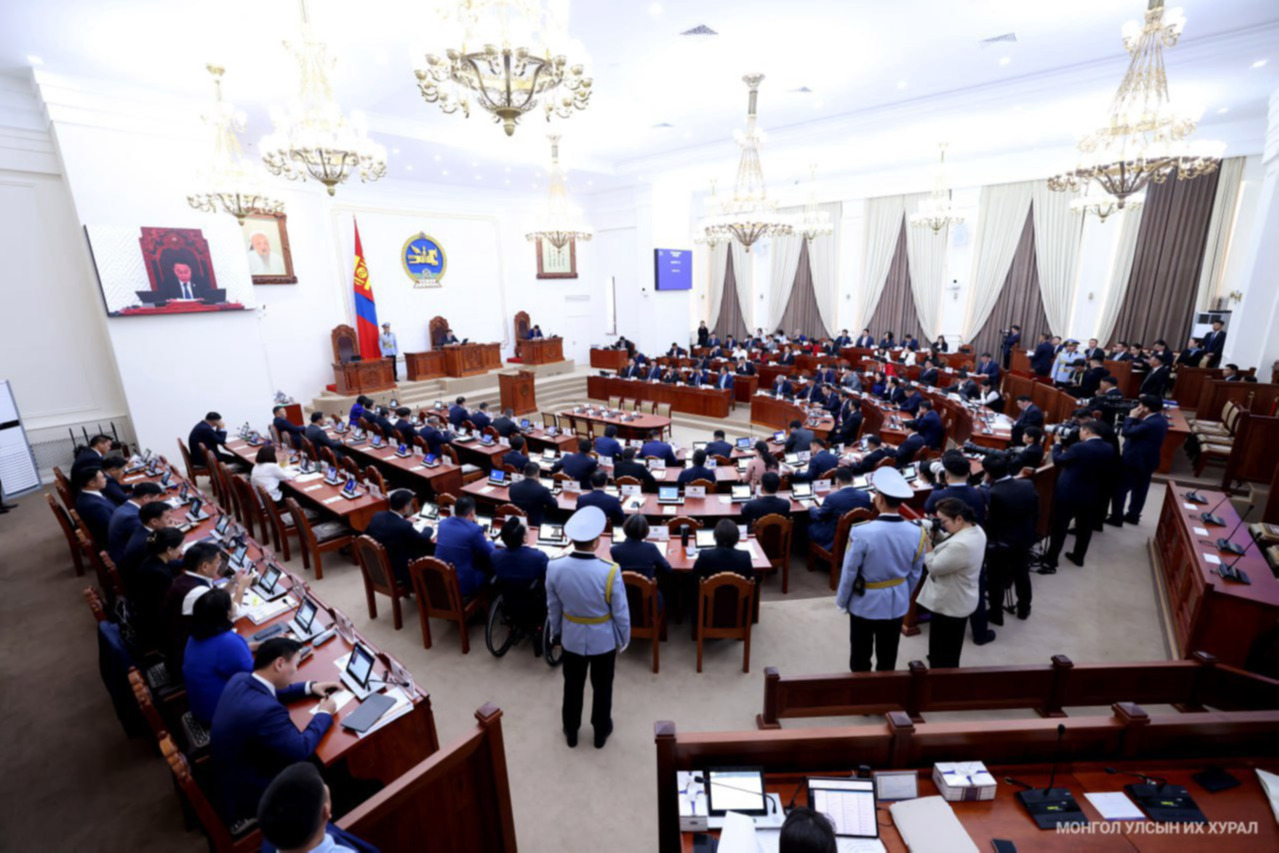
In a historic move, the parliament has accepted the president’s veto of the 2025 Budget Law and related legislation. For the veto to be upheld, it required the support of two-thirds of the members present at the session, and it received just that. This marks the first time the parliament has accepted a full presidential veto of the national budget.
The president had previously vetoed the entire budget on six occasions, but none of those vetoes were approved by the legislature. Three partial vetoes issued by the president in the past were all rejected. With this unprecedented decision, it remains uncertain how the 2025 budget will be re-discussed and what impact this will have on the legislative process.
Members of the parliament raised concerns during the session about the next steps for the budget, given that a complete veto has never been accepted before. The head of the parliament’s secretariat, B.Baasandorj, clarified the procedure, stating, “There is a need to clarify the budget before re-discussing it. Therefore, a one-time legislative act should be adopted by resolution and then the budget should be revisited.”
As a result, the parliament will need to adopt a one-time legislative act before proceeding with the re-discussion of the 2025 budget, which is expected to take place next week. The fact that the president vetoed the 2025 budget law, along with accompanying legislation, triggered a lively discussion in the ongoing plenary session of the parliament.
During the session, a member of parliament O.Tsogtgerel raised concerns regarding the future of the 30 percent annual budget growth, which was introduced following amendments to the Fiscal Stability Law in August. He questioned whether the system would remain in place and how it could be adjusted, noting that the recent changes had opened the door to uncontrolled budget increases.
O.Tsogtgerel emphasized that had the usual constraints not been lifted, the budget expenditure could not have expanded by more than six to seven percent relative to the real GDP growth. He pointed out that the budget approved in September included a 30 percent increase, and questioned the justification for the president's veto, which he believed was a rightful stance.
Finance Minister pushes for achievement of macroeconomic goals
In response, Finance Minister B.Javkhlan explained that the amendments made to the Fiscal Stability Law in August were part of the government’s action plan through 2028. These changes aimed to implement the government's objectives promptly, ensuring that the plan could launch without delay. B.Javkhlan highlighted that the 2025 budget had been designed to continue the government's development goals, particularly in regional development, and included necessary adjustments for price increases and sector operational costs.
B.Javkhlan also noted that Mongolia's GDP had grown 4.5 times in the past four years, with the budget-to-GDP ratio remaining stable at 3:1. The increase of 3.5 trillion MNT in budget expenditures was attributed to this stability and the need to account for price hikes and operating costs.
Despite the president's veto, B.Javkhlan emphasized the government’s commitment to achieving its macroeconomic goals without delay, while also acknowledging the changing external situation. He stressed the importance of moving forward cautiously, without rushing the process, and reiterated the government's determination to reach its long-term objectives. The debate on whether to accept the veto continues, with lawmakers carefully considering the implications of the president’s decision.
During the session, G.Zandanshatar, the Head of the Presidential Office, warned that if the president's conditions are not met, another veto may be issued. The president's veto outlined several key requirements. First, the president called for the adoption of a budget without a deficit, urging the implementation of a countercyclical budget policy that considers fluctuations in the global market and commodity prices. The focus should be on strengthening foreign exchange reserves, increasing budget savings, and reducing national debt.
In addition, the president emphasized the need to strengthen budget discipline among citizens, wealth creators, taxpayers, and professional organizations. He also called for a reduction in budget expenditures, advocating for efficiency and economy in government operations. Furthermore, the president insisted on eliminating any duplication of duties within government agencies.
The president also highlighted the importance of political parties and coalitions fulfilling their election promises. Lastly, he called for the vetoed 2025 budget law and the associated legislation to be resolved in line with relevant laws. As discussions continue, lawmakers are considering the president's demands and the necessary legislative actions to address them.
According to the attendance report for the 2024 fall regular session, presented on November 22, 39 members of parliament were absent from the session that discussed whether to accept the president’s veto of the 2025 budget law. Notably, 13 members were absent due to various reasons. In addition, three members were on medical leave. 18 members were absent due to foreign or domestic assignments. Despite these absences, 87 members were present to participate in the ongoing discussions, which is a significant turnout for such a crucial session.